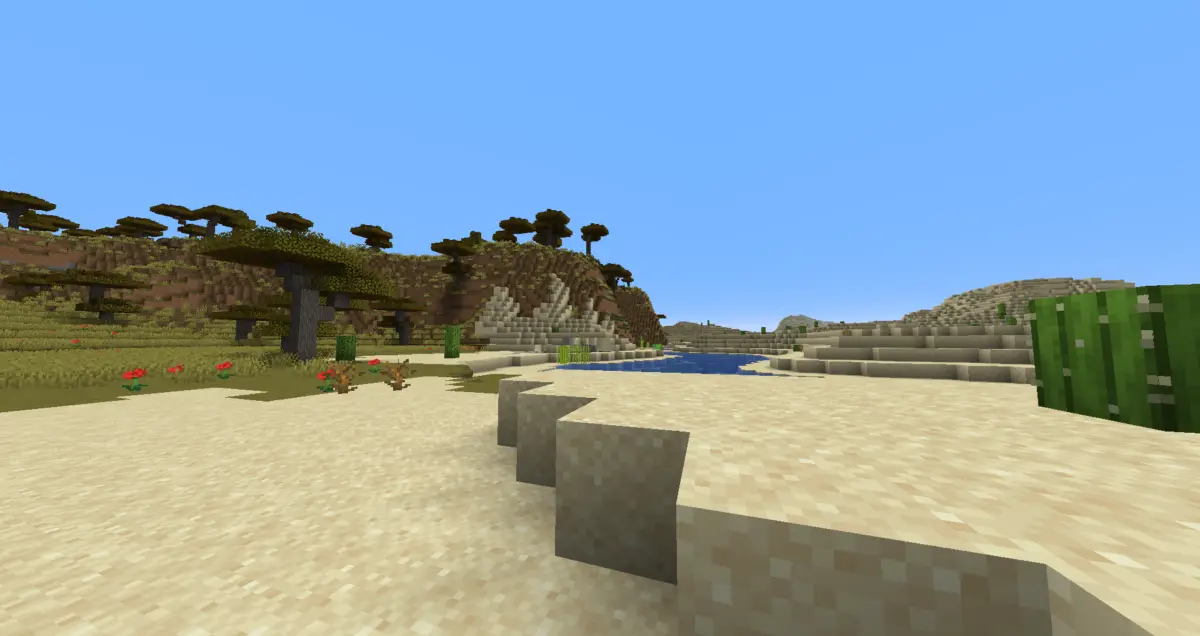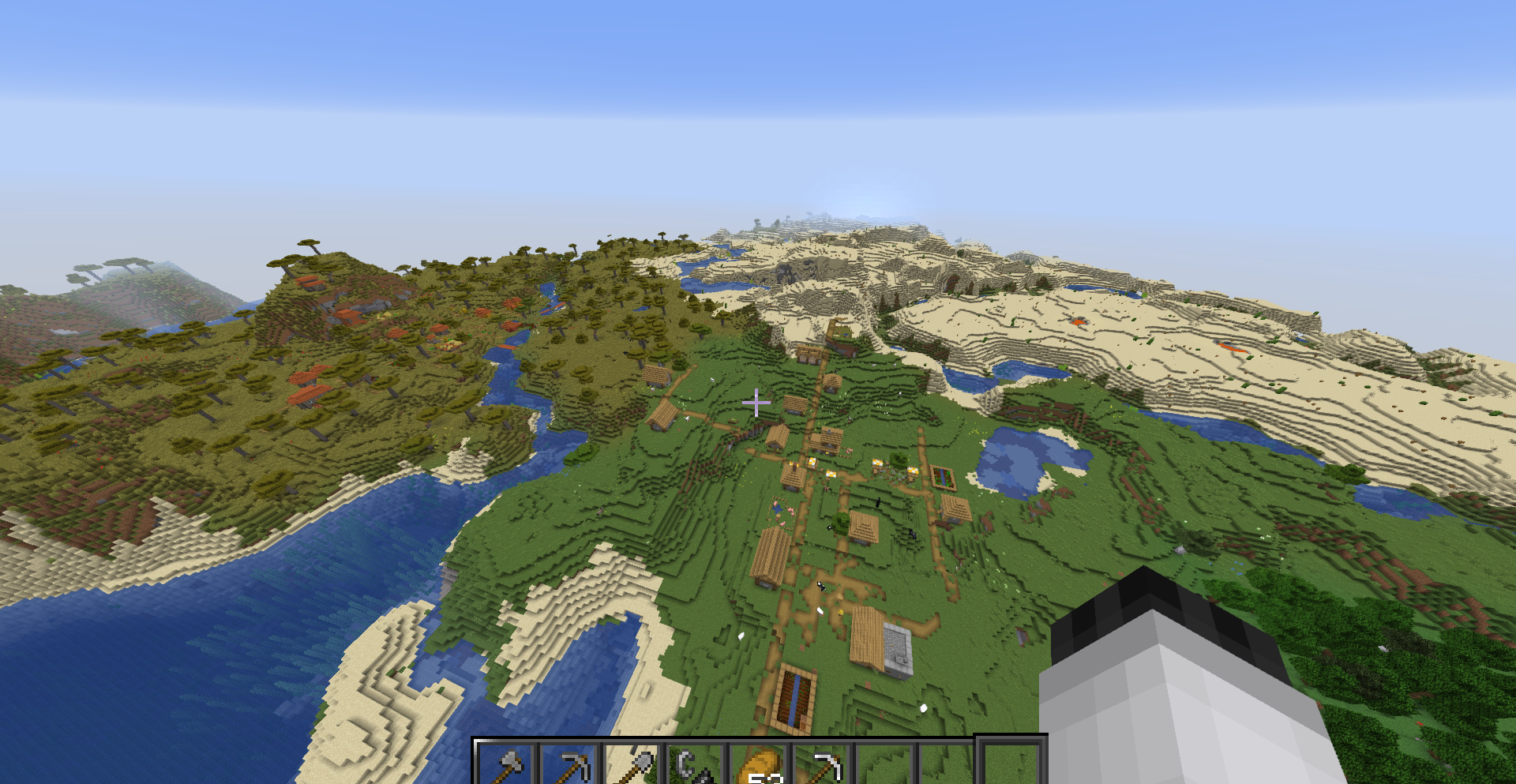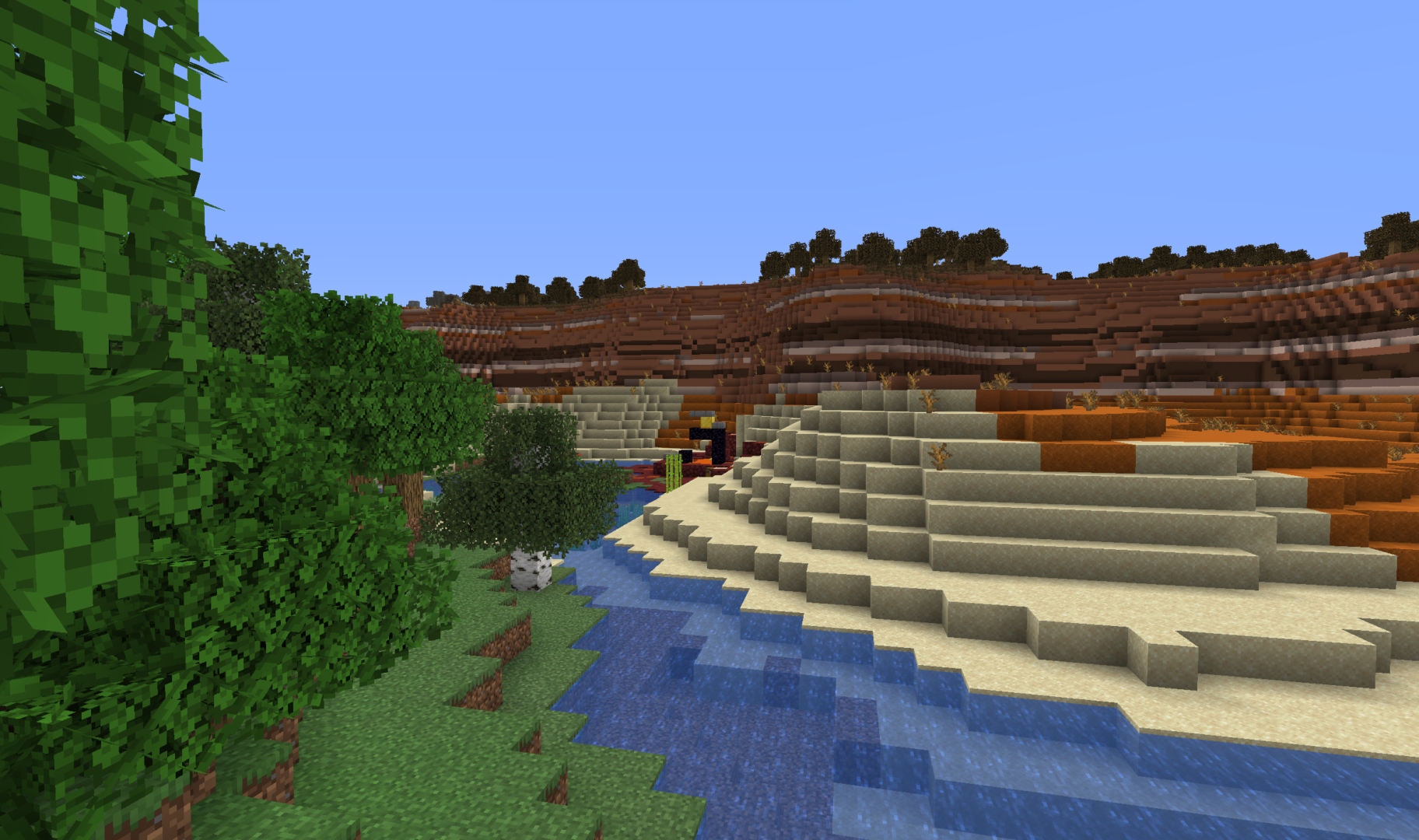
What happens when you play Minecraft too much?
Are your kids obsessed with Minecraft? Do they spend every waking hour glued to their screens, building virtual worlds and fighting off pixelated monsters? Well, you’re not alone. Many parents are noticing that their children have become completely absorbed in the addictive world of Minecraft. But what happens when you play Minecraft too much?
We all know that video games can be a lot of fun, and Minecraft is no exception. It’s like a digital Lego set, allowing players to build and create anything their imagination desires. But when does it cross the line from harmless entertainment to video-game abuse or overuse?
If your children are displaying signs of video-game abuse or overuse, it’s time to take notice. They may be so preoccupied with playing Minecraft that it has become an overwhelmingly large part of their lives. But what’s the harm, you may ask? Well, excessive use of Minecraft can have serious consequences.
One of the most significant issues is the impact on their psychosocial development. When children spend excessive amounts of time playing Minecraft, it can interfere with their ability to engage in real-world social interactions. They may become withdrawn, isolated, and socially awkward. This can lead to feelings of loneliness and depression, as they struggle to connect with others on a deeper level.
But it doesn’t stop there. Academic difficulties can also stem from overuse of Minecraft. When kids are spending hours upon hours playing the game, they are neglecting their schoolwork and missing out on valuable learning opportunities. Their grades may suffer, and they may struggle to keep up with their peers. It’s important to find a balance between play and education to ensure their future success.
Furthermore, excessive Minecraft playing can take a toll on their interpersonal relationships. Constantly choosing Minecraft over spending time with friends and family can strain relationships and create resentment. The virtual world may seem exciting, but it’s crucial for children to develop real-life connections and social skills.
Recognizing and addressing the signs of video-game abuse in children is essential. As parents, we have a responsibility to guide and protect our children. Look out for symptoms such as neglecting other hobbies and interests, irritability when not playing Minecraft, and difficulty in controlling their gaming habits. By recognizing these signs early on, we can take steps to intervene and help our children develop healthier habits.
In this series of articles, we will delve deeper into the various consequences of excessive Minecraft gameplay. We will explore the psychosocial issues that arise, the academic difficulties that can result, and the impact it has on interpersonal relationships. We will also provide valuable insights and tips on how to recognize and address video-game abuse in children.
So, if your children are spending an excessive amount of time in the Minecraft universe, it’s time to take action. Stay tuned for the rest of our articles, where we will provide you with the information you need to understand the effects of too much Minecraft and how to help your kids find a healthy balance. Together, we can ensure a brighter future for our Minecraft-loving children!
Psychosocial Issues Caused by Excessive Minecraft Gameplay
Your children may be displaying signs of video-game abuse or overuse. They appear to be preoccupied with playing Minecraft to the extent that it has become an overwhelmingly large part of their lives. Excessive use can result in psychosocial issues, academic difficulties, and problems in interpersonal relationships. But fear not, dear reader, for we are here to shed light on this pixelated predicament and help you navigate the virtual world of Minecraft.
So, what exactly are the psychosocial issues caused by excessive Minecraft gameplay? Well, let’s start with the academic difficulties. Picture this: your child spends hours upon hours exploring the vast landscapes, mining resources, and crafting magnificent structures in the game. While this might seem like a creative outlet, it can also hinder their real-world academic progress. Homework assignments get neglected, grades suffer, and their ability to focus on non-Minecraft-related tasks diminishes. It’s as if their minds have been enchanted by the game, leaving little room for anything else.
Now, let’s move on to interpersonal relationships. Your child’s obsession with Minecraft might be causing them to withdraw from social interactions. Instead of hanging out with friends or participating in extracurricular activities, they find solace in the virtual companionship of fellow Minecraft players. While teamwork and collaboration are encouraged within the game, it’s essential to strike a balance between online and offline interactions. After all, nothing beats the joy of face-to-face human connection and shared adventures in the real world.
But fret not, concerned parent! There are ways to address these issues and bring your child back to the realm of moderation. Here are a few tips and tricks to help you navigate this digital maze:
-
Set reasonable limits: Establish clear boundaries for Minecraft gameplay. Encourage your child to explore other interests and engage in offline activities. Remember, moderation is key!
-
Encourage balance: Help your child strike a healthy balance between virtual adventures and real-world responsibilities. Teach them the importance of managing their time effectively and prioritizing their academic endeavors.
-
Foster real-world connections: Encourage your child to engage in social activities outside the realm of Minecraft. Organize playdates, enroll them in sports or clubs, and emphasize the importance of face-to-face interactions.
-
Open up a dialogue: Talk to your child about their gaming habits and the impact it may be having on their psychosocial well-being. Be understanding and empathetic, providing them with the support they need to find a healthy balance.
Remember, dear reader, excessive Minecraft gameplay can lead to psychosocial issues such as academic difficulties and problems in interpersonal relationships. By implementing these tips, you can guide your child towards a more balanced and enriched life. So, grab your pickaxe and embark on this adventure of self-discovery and moderation. Together, we can conquer the pixelated realm and cultivate a harmonious blend of both virtual and real-world experiences. Good luck, adventurer!

Academic Difficulties Stemming from Overuse of Minecraft
Your children may be displaying signs of video-game abuse or overuse. They appear to be preoccupied with playing Minecraft to the extent that it has become an overwhelmingly large part of their lives. Excessive use can result in psychosocial issues, academic difficulties, and problems in interpersonal relationships.
Playing Minecraft can be a fun and engaging experience for children, allowing them to explore a virtual world, build amazing structures, and interact with friends. However, when the game starts to take over their lives, it can have negative consequences.
One of the key academic difficulties stemming from overuse of Minecraft is a decrease in productivity. Instead of focusing on schoolwork or other extracurricular activities, children may find themselves spending hours upon hours in front of the computer screen, endlessly mining for resources or building elaborate structures. This can lead to a decline in grades and missed deadlines, causing frustration for both children and parents alike.
Moreover, excessive Minecraft playing can result in a lack of time management skills. Children may struggle to balance their time between school responsibilities, social activities, and gameplay. This can lead to a chaotic schedule, with important tasks being pushed aside to make more time for Minecraft. It’s as if the game has become a black hole, sucking away time that could have been spent on more important and productive activities.
In addition to these academic difficulties, overuse of Minecraft can also hinder critical thinking skills. While the game does encourage creativity and problem-solving, excessive gameplay can limit a child’s exposure to a variety of other experiences that can foster critical thinking. Minecraft provides a virtual world, but real-world challenges and experiences are equally important for a child’s development.
So, what can you do if you suspect your child is overusing Minecraft? Here are a few tips to help address the issue:
-
Set clear boundaries and time limits for gameplay. Encourage your child to spend time on other activities such as reading, outdoor play, or pursuing hobbies.
-
Communicate with your child about the importance of balancing their time and responsibilities. Help them understand that excessive gaming can have negative consequences on their academic performance and overall well-being.
-
Encourage your child to explore other interests and hobbies. Expose them to new experiences that can stimulate critical thinking and creativity.
-
Seek professional help if the issue persists. There are therapists and counselors who specialize in video game addiction and can provide guidance and support.
Remember, Minecraft can be a fantastic game for children to enjoy and learn from, but when it starts to take over their lives and impede their academic progress, it’s time to take action. By setting boundaries, fostering a healthy balance, and encouraging diverse experiences, you can help your child overcome the academic difficulties stemming from overuse of Minecraft.
Impact on Interpersonal Relationships due to Excessive Minecraft Playing
Your children may be displaying signs of video-game abuse or overuse. They appear to be preoccupied with playing Minecraft to the extent that it has become an overwhelmingly large part of their lives. Excessive use can result in psychosocial issues, academic difficulties, and problems in interpersonal relationships.
Psychosocial issues caused by excessive Minecraft gameplay can be quite concerning. Children may become socially isolated, preferring the virtual world over real-life interactions. They may withdraw from family and friends, missing out on important social connections and experiences. This can lead to feelings of loneliness, anxiety, and even depression.
Academic difficulties stemming from overuse of Minecraft are another significant concern. When children spend excessive amounts of time playing the game, they neglect their schoolwork and studies. Their grades may suffer, and they may struggle to keep up with their classmates. This can have long-term consequences for their educational success and future opportunities.
But perhaps the most alarming impact of excessive Minecraft playing is on interpersonal relationships. Friendships and family dynamics can be severely affected when one person becomes obsessed with the game. Imagine a family dinner where everyone is engrossed in their own virtual world, completely disconnected from each other. Or think about a child who spends more time building virtual structures in Minecraft than engaging in meaningful conversations with their friends.
Excessive Minecraft playing can create a barrier between individuals, hindering effective communication and emotional connection. Relationships require time, effort, and genuine interest in the other person. When one person is too consumed by a virtual game, these essential elements are neglected.
So, what can you do as a parent or loved one? Here are a few tips to help address the issue:
-
Set clear boundaries and time limits for Minecraft gameplay. Encourage a healthy balance between virtual and real-life activities.
-
Engage in open and honest conversations with your child about the impact excessive gaming can have on their overall well-being and relationships.
-
Encourage alternative activities that promote social interaction and personal development, such as sports, hobbies, or volunteering.
-
Lead by example. Show your child the importance of balancing technology with real-life experiences by limiting your own screen time and engaging in meaningful activities together.
Remember, it’s crucial to approach the issue with understanding and empathy. Excessive Minecraft playing may be a coping mechanism or a form of escape for your child. By addressing the underlying reasons behind their behavior and providing healthier alternatives, you can help them develop a more balanced and fulfilling life.
Recognizing and Addressing Signs of Video-Game Abuse in Children
Your children may be displaying signs of video-game abuse or overuse. They appear to be preoccupied with playing Minecraft to the extent that it has become an overwhelmingly large part of their lives. Excessive use can result in psychosocial issues, academic difficulties, and problems in interpersonal relationships.
Let’s face it, we’ve all been there. Remember when you were a kid and your parents had to literally pry you away from your Game Boy? Or how about those all-night sessions of playing Super Mario Kart with your friends? Ah, the good old days. But nowadays, video game addiction is a real concern, and it’s not just about kids spending too much time glued to their screens.
So, how can you recognize if your child is experiencing video-game abuse? Here are some signs to look out for:
-
Neglected responsibilities: If your child starts neglecting their homework, chores, or other important activities because of their obsession with Minecraft, it could be a sign of a problem. Sure, building an epic virtual castle might seem more exciting than cleaning their room, but priorities, people!
-
Irritability and mood swings: Have you noticed your child becoming increasingly irritable and moody lately? If they get angry or frustrated when they can’t play Minecraft or if they become withdrawn and sad when they’re not gaming, it might be time for a Minecraft intervention.
-
Difficulty sleeping: Is your child staying up way past their bedtime to get just one more game in? This lack of sleep can have a serious impact on their physical and mental health. So, if you find them yawning their way through the day, it might be time to set some boundaries.
Now that we’ve identified some of the signs, how can we address this issue? Here are a few tips:
-
Set limits: Establish clear rules about when and for how long your child is allowed to play Minecraft. Encourage them to engage in other activities, like reading or playing outside, to diversify their interests.
-
Create a tech-free zone: Designate certain areas of your home, like bedrooms or family meal times, as tech-free zones. This will help your child develop healthier habits and focus on other important aspects of life.
-
Encourage open communication: Talk to your child about their gaming habits and listen to their concerns. Together, you can find a balance that works for both of you.
Remember, video games can be a fun and enjoyable pastime, but when they start taking over your child’s life, it’s time to take action. By recognizing the signs of video-game abuse and addressing the issue head-on, you can help your child develop a healthier relationship with gaming and foster a well-rounded and fulfilling life.

In today’s digital age, it’s no surprise that children are drawn to the captivating world of Minecraft. This popular video game has taken the younger generation by storm, offering endless possibilities and adventures. However, as with any form of entertainment, too much of a good thing can sometimes be detrimental. After reading through this insightful article, it’s clear that excessive gameplay of Minecraft can lead to a range of problems that we, as parents and guardians, need to be aware of.
One of the most concerning issues mentioned is the impact on psychosocial development. When children become consumed by Minecraft, it’s easy for them to withdraw from the real world and lose touch with their emotions. They may find it difficult to connect with others on an emotional level, as their focus is solely on the virtual realm. It’s crucial for us to recognize these signs and encourage a healthy balance between Minecraft and real-life experiences.
Another distressing consequence of Minecraft overuse is the academic difficulties it can cause. We all want our children to succeed in their studies, but when Minecraft becomes their top priority, schoolwork inevitably suffers. It’s not uncommon for kids to neglect their homework or lose interest in learning when they are engrossed in building virtual worlds. As responsible adults, we must step in and set limits to ensure that their education remains a top priority.
Perhaps the most heart-wrenching effect of excessive Minecraft playing is the strain it can put on interpersonal relationships. As the article highlights, children who spend an excessive amount of time in the Minecraft universe may struggle to form meaningful connections with their peers. Their social skills may become rusty, and their ability to engage in face-to-face interactions can significantly diminish. It’s vital for us to encourage real-life social interactions and maintain open lines of communication with our children, ensuring that they develop strong bonds outside of the virtual world.
Recognizing the signs of video-game abuse in our children is the first step towards addressing this issue. The article provides valuable insights into the behaviors that may indicate a problem, such as preoccupation, withdrawal from other activities, and neglecting responsibilities. By being proactive and attentive, we can intervene early on and guide our children towards a healthier relationship with Minecraft.
The allure of Minecraft is undeniable, but we must be cautious of the potential negative consequences that excessive gameplay can bring. Our children’s psychosocial development, academic performance, and interpersonal relationships are at stake. By finding the right balance between virtual adventures and real-life experiences, we can ensure that our children’s love for Minecraft remains a healthy and enjoyable part of their lives. So let’s be mindful, supportive, and engaged as we guide them through the pixelated wonders of this captivating game.